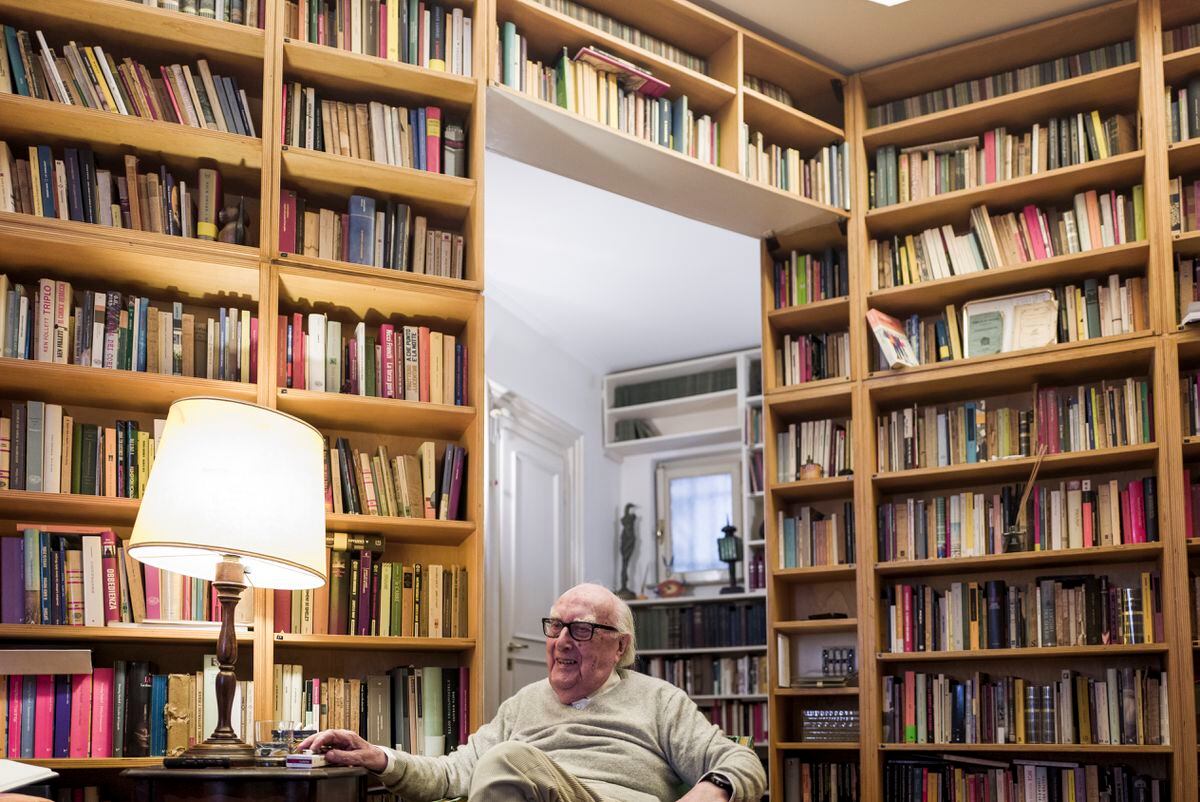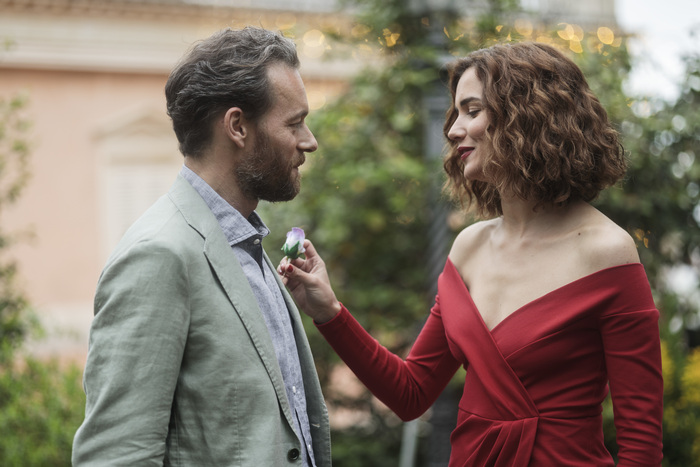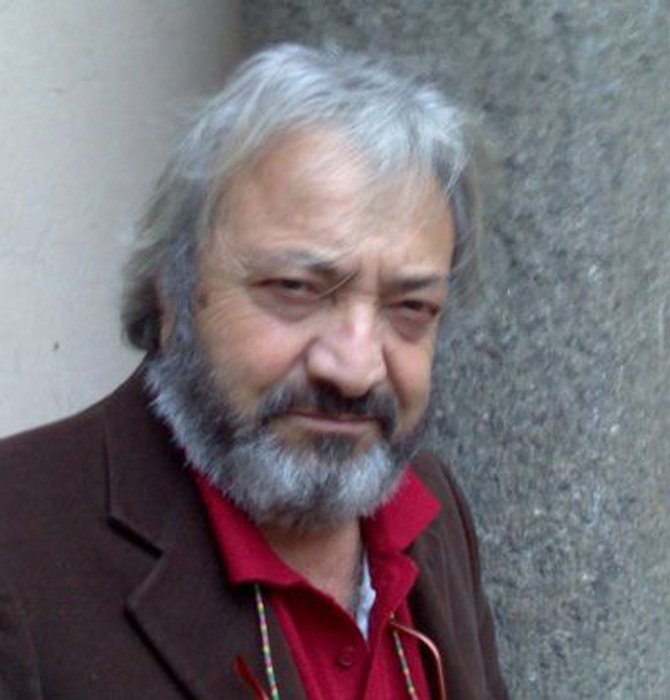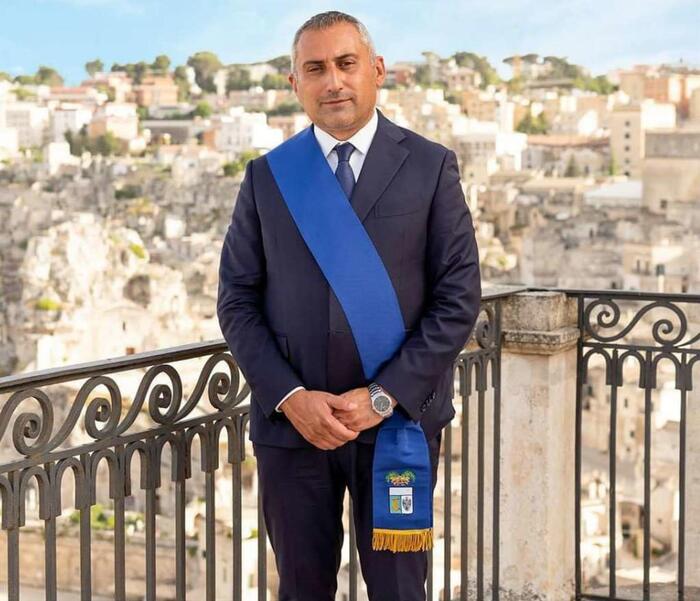The 30 novels starring Commissioner Montalbano are based on two premises that are hardly debatable: food, especially in Sicily, is a very serious matter and we should not live with corruption, abuse of power and injustice and look the other way .
Unlike another great Sicilian writer, Leonardo Sciascia, in whose novels the mysteries are never solved —as is often the case in Italy, a country that has carried too many unanswered questions since the years of lead—, in the plots of Andrea Camilleri (1925 -2019) the culprit is always discovered, although, as its Spanish editor, Sigrid Kraus, pointed out: "That is not the same as doing justice because money can do everything."
Story by story, Montalbano shows the hidden face of the society in which he lives but, as in
El Gatopardo
,
the commissioner only manages to make everything change so that everything remains the same.
This Thursday the saga of this Sicilian curator, which has sold 25 million copies in Italy and 1.2 million in Spanish, closes in Spanish, with the publication by Salamandra de
Riccardino
, the latest novel by Andrea Camilleri, translated by Carlos Mayor.
It represents the end of an era for many readers who will never have a new
Montalbano
in his hands, but it does not mean the death of the character, because precisely in this book he shows that he is more powerful than his author and even rebels against him.
The commissioner breaks the fourth wall to jump to reality, not only from the novels, but also from its television adaptation, which has been on the air on RAI since 1999 and is one of the most watched productions in Italian history.
Who rules in the pages of
Riccardino
is no longer just the author but, in a Pirandelian twist, his character.
More information
"The darkness cannot be fought"
Sculpture by Andrea Camilleri in front of Montalbano's house in Punta Secca, Ragusa. FRANCO ORIGLIA (Getty Images)
In the novel, the dialogues between Camilleri and Montalbano reach this tone:
—Montalbano: “But this looks like a scene from the Marx Brothers!”
—The author: “What you think or doesn't seem like brings me to the hoof.
If I say that the alley exists and you are there, let's see who is the handsome man who contradicts me.
It won't be you or the ones on TV.
Vigàta is an invention of mine.
And now, please, let me continue."
—Montalbano: “It's a first division bullshit!
Among other things, this scene has been seen in the cinema ad nauseum.
Before his venting at
Riccardino
, relations between Montalbano and Camilleri had already gone through major potholes.
"It's disgusting blackmail," joked the writer during an interview with the Rome correspondent of this newspaper, Daniel Verdú, when he asked him about the way in which the curator's success had marked his life and his work.
Thanks to Montalbano's sales, he was able to write historical fiction, always set in Sicily, which he was passionate about.
Despite his growls, yes, since he created it in 1994 at the age of 64 as a tribute to his friend Manuel Vázquez Montalbán, they could not live without each other.
Since then, he has published 30 novels and five collections of stories, including some masterpieces of European crime literature such as
The Terracotta Dog,
The Excursion to Tíndari
or
The Pyramid of Mud
.
The first is
The Shape of Water
and the latest, which hit bookstores in 2020, is
Alcyon's Cook
.
Riccardino
It is not the last one that Camilleri wrote, but the last one to be published, as the author explained in that interview, which took place in his Roman house in 2017, two years before his death.
It was written between July 2004 and August 2005. However, in November 2016, when he had already lost his sight, he decided to rewrite it with the help of his assistant, Valentina Alferj.
Perhaps because she sensed that she was getting closer to the time when she would have to cross the lagoon.
This is how he told Daniel Verdú about the rewriting process when he asked him if he was changing that book that had remained in a drawer for more than a decade: “A lot.
The construction of sentences, the search for words.
It is a language that becomes richer when it ages.
A novel from 15 years ago seems poor compared to how I write today”.
And he also explained how he had changed his perspective of his past: “The older you are, the more accurate you have the memories of youth.
Leonardo Sciascia called it the presbyopia of memory.
In fact, I am doing it with a novel by Montalbano that I left aside”.
Frame from a chapter of the series 'El Comisario Montalbano' showing the character played by Nicola Zingaretti.
Camilleri not only created a central character, but also a whole world around him: from the city of Vigàta (a transcript of Porto Empedocle) or Montelusa (the province of Agrigento) to all the policemen who swarm around the police station, from Fazio to Catarella , going through the infumable and mellifluous boss Luca Bonetti-Alderighi, and naturally, Livia, the patient girlfriend of the commissioner, who lives in Genoa.
And from that world of its own, a unique language also emerged.
This is how Riccardino
's epilogue from
his Italian editor, Antonio Sellerio, explains it: “The 2016 writing reflects how, over the years, Camilleri's language went from the 'bastard language' that the author heard as a child to the ' invented language' of Vigàta;
that is to say, that over time it became, like any language, a way of life, the way of life of an invented province”.
Mural by Andrea Camilleri in Palermo. Stefano Montesi - Corbis (Getty Images)
As time passed, not only did Camilleri's language change, but his books became increasingly darker in their description of today's Europe, although he never forgot his sense of humor.
All novels are tremendously funny, with moments of laughter.
Montalbano didn't lose his appetite either and the Sicilian food feasts, in Enzo's
trattoria
or through the dishes that his assistant Adelina leaves for him in the fridge, are inalienable no matter how bad things get.
His fans wait more impatiently for the arancini, the spaghetti alla Norma, the pasta n'casciata or the red mullet than for the resolution of the cases.
Besides his appetite, Montalbano also never lost a profound sense of justice, of what is right and what is wrong.
And no matter how many times the dark powers that roam Sicily get their way, he keeps trying.
It seems to be governed by the words with which, in
El Gatopardo,
by Giuseppe Tomasi di Lampedusa —the great classic of the Sicilian novel—, they try to convince the prince of Salina to stand for election: “It is possible to beat the climate, erase the memory of bad governments;
the Sicilians will want to improve;
if honest men get out of the way it will be left free for people without scruples, without vision.
Then everything will be as before, centuries will pass again.
As long as he is alive, Montalbano will keep trying.
And after
Riccardino
, it is clear that it does not need its author to continue existing.
Subscribe to continue reading
read without limits
Keep reading
I'm already a subscriber









